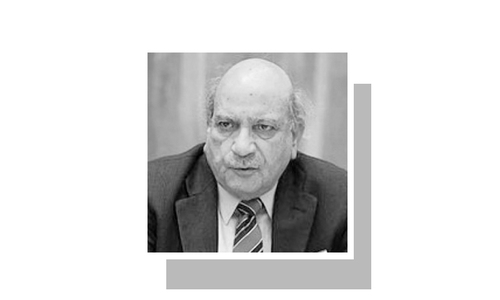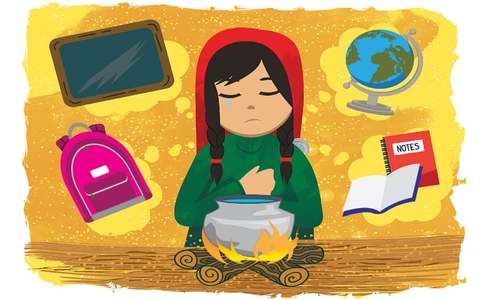Almost all mainstream political parties of the country have pledged to ensure equal rights for all citizens without discrimination, under Article 25 of the Constitution, but that those pledges are mere rhetoric becomes evident before every election when it comes to award of tickets to women on general seats.
This time around, more women are contesting on general seats than in any election in the past — thanks to a provision in the Elections Act 2017 which binds political parties to allocate at least five per cent tickets to women on general seats of national and provincial assemblies. However, a closer look at the list of candidates announced by political parties so far indicates that either the parties had voted for this provision under political compulsion or in order to meet international obligations in this regard.
The three biggest parties — Pakistan Muslim League-Nawaz (PML-N), Pakistan Tehreek-i-Insaf (PTI) and Pakistan Peoples Party (PPP) — issued tickets to the minimum number of women as is possible under the law — barely following the official five per cent requirement.
According to the list of National Assembly candidates announced by these parties so far, the PPP has fielded a total of 176 candidates, of which 12 (6.8pc) are women. The PTI has given tickets to 244 candidates, 14 of them are women (5.7pc), whereas the formerly ruling PML-N has so far announced 125 candidates, of which five (4pc) are women.
Similar patterns have been observed in the list of provincial candidates announced by the three parties. In Balochistan and Khyber Pakhtunkhwa, for example, the PTI hasn’t even tried to follow the law. According to the final list of candidates, the party awarded a ticket to one woman (2.5pc) out of the 40 candidates it has nominated for the Balochistan Assembly, whereas there are only four women (4pc) among the 97 candidates the party has announced for the KP Assembly.
Under the law, parties must give at least five per cent tickets to women on general seats of national and provincial assemblies
A member of the previous Election Reforms Committee, which had approved the law, claims that the Election Commission could take action against parties which were not following the law in this case, and could even prevent all candidates of such a party, from the provinces where they violated the law, from using their allotted election symbol. There have been reports that the ECP has already sought details from political parties in this regard.
In the 2013 elections, the PPP had awarded tickets to 13 women, whereas the PML-N and the PTI had given tickets to eight and six women, respectively. Of these, only nine women (five of the PPP and four of the PML-N) had won. The total number of women who received party tickets in the 2013 general election was 61, and the number of women who contested the 2013 elections as independent candidates was 74. In 2008, the number of women who were nominated to contest elections by their parties was only 41, whereas 31 women had contested the election as independent candidates
Back in 2002, then military dictator Gen Pervez Musharraf, hoping to improve representation of women in the legislature, had introduced reserved seats for women in the national and provincial assemblies. However, political experts and civil society activists have expressed serious reservations over the way this representation has been accorded. They argue that women must get equal opportunities to enter politics and compete with male politicians. Women should not be nominated as “token” candidates out of charity, they add.
At present, there are 60 reserved seats for women in the 342-member National Assembly. However, it has been observed that political parties mostly accommodate women from influential political families on those seats, while very few genuine political workers find their names on the lists prepared by the party leaders, who have absolute discretionary powers.
This time around, there were reports of resentment and even protests from within parties against attempts to accommodate women from strong financial or political backgrounds on the reserved seats. The PML-N even awarded several tickets to women from the same family, as long as the families were political bigwigs.
Candidates profile
The lists of candidates nominated by the three parties include mostly familiar faces and women who gained entry into politics through male members of their family.
On the PPP’s list are Dr Nafeesa Shah, daughter of former Sindh chief minister Syed Qaim Ali Shah; former deputy speaker of the Sindh Assembly Shehla Raza, former law minister Mehreen Anwar Raja; Asma Arbab Alamgir, wife of former minister Arbab Alamgir; Dr Azra Fazal and Faryal Talpur, both sisters of former president Asif Zardari — though this time around they are contesting for provincial assembly seats; Shazia Marri and Samina Khalid Ghurki.
Similarly, the PML-N’s list carries the same old names — former health minister Saira Afzal Tarar, Shezra Mansab Ali Kharral, Tehmina Daultana and Sumaira Malik, besides Maryam Nawaz, the daughter of ex-prime minister Nawaz Sharif.
The list presented by the PTI is not that different. It carries names of a number of women who have recently abandoned other political parties to get the PTI’s ticket. The PTI awarded a ticket to former minister in the PPP government Dr Firdous Ashiq Awan from NA-72 Sialkot. Similarly, Ghulam Bibi Bharwana will also contest on a PTI ticket from Jhang after enjoying two terms in the assembly through the PML-Q and the PML-N.
Tehmina Dasti, daughter of Sardar Amjad Dasti, has also managed to get a PTI ticket from NA-182 (Muzaffargarh). Sources said she had submitted papers as an independent candidate, but later got a PTI ticket after the party failed to enter into an agreement with Jamshed Dasti, who is also in the run from the same constituency from the platform of his newly-formed Awam Raj Party.
Syeda Zehra Basit Bokhari is another newcomer who is contesting from NA-184 (Muzaffargarh) on the PTI ticket. She is the wife of Basit Sultan Bokhari, who has been in the PML-N and the PML-Q previously. Basit is contesting the election from the adjacent NA-185 constituency independently.
Khadeeja Aamir is contesting the election on a PTI ticket from NA-173 (Bahawalpur). She is the wife of former PPP MNA Aamir Yar Waran, who was disqualified in a fake degree case. Ms Amir had previously served as an MNA on a PPP ticket after winning the by-election from the seat vacated by her husband.
In Bahawalnagar, Fatima Tahir Cheema, the daughter of former PML-N MNA Tahir Bashir Cheema, received a PTI ticket after the disqualification of her father.
In Sargodha, the PTI has awarded a ticket to Dr Nadia Aziz, who had previously served as an MPA on tickets of the PPP and the PML-N. Her father had also contested the NA election in 2002 on a PPP ticket.
However, the PTI has also given tickets to some of its old party members. One such example is that of Zartaj Gul, an active party member who received a ticket to contest the election once again from NA-191 (Dera Ghazi Khan).
The PTI has taken a bold decision of awarding a ticket to Hameeda Shahid on a provincial assembly seat from Khyber Pakhtukhwa (PK-10 Upper Dir) — the constituency where in the past, women were not even allowed to cast votes following a clandestine deal among the parties.
The PTI has, once again, awarded a ticket to Dr Yasmin Rashid, who had contested the 2013 elections in Lahore against Nawaz Sharif and later faced Kulsoom Nawaz in a by-election, but lost.
In Larkana, hometown of the Bhuttos, the PTI has nominated two women who have no political background. Halima Bhutto will contest the polls from NA-200 (Larkana-I) against PPP chairman Bilawal Bhutto-Zardari and Maulana Rashid Mehmood Soomro, president of the Muttahida Majlis-i-Amal Sindh chapter. Quratul Ain Unar has been awarded a ticket from NA-201 (Larkana).
Flight Lt Mussarrat Shah (Qambar-Shahdakot), Nargis Naz (Matiari) and Ghazala Hussain (Naushehro Feroze) are among other ticket holders of the PTI.
Published in Dawn, June 30th, 2018














































